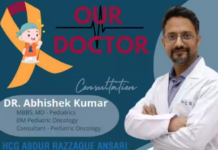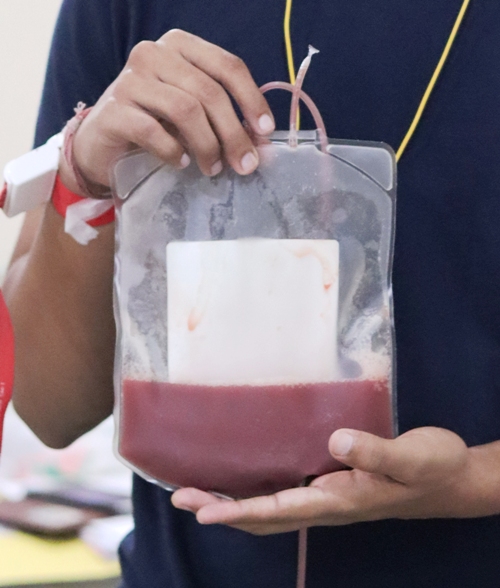New Delhi, November 08, 2023 : In India, the battle against blood cancer rages on, with an alarming statistic: someone gets diagnosed this devastating disease every 5 minutes, resulting in an estimated 70,000 incidences of it annually. Blood cancer continues to be a grave public health concern, characterized by its high prevalence and mortality rates. Leukemia stands as the most prevalent form of blood cancer in India, representing over half of all cases, while Lymphoma and Myeloma have seen a concerning uptick in incidence in recent years.
However, the harsh reality is that only a handful of affected individuals have access to life-saving curative treatments, receive the curative treatment of blood stem cell transplant. This National Cancer Awareness Day, experts from DKMS BMST Foundation India call for an increased awareness on blood stem cell donation to save patients who suffer from blood cancers and blood disorders.
A beacon of hope, a stem cell transplant has emerged as a promising treatment option for those battling blood cancer and blood related disorders. This procedure involves the infusion of donor stem cells—either from a related or unrelated donor—to replace faulty blood cells. The objective is to reset the immune system and halt the progression of the disease.
To successfully carry out a blood stem cell transplant, it is crucial to obtain blood stem cells from an HLA-matched (Human Leukocyte Antigen) donor. When blood stem cells are obtained from a donor, they are infused into the patient via a transplant process. This infusion allows the stem cells to travel through the bloodstream and eventually find their way to the bone marrow, where they reside. These new blood stem cells increase in number and produce red blood cells, white blood cells, and platelets, replacing the patient’s diseased cells.
Only 30% of patients diagnosed with blood cancer or a blood disorder find a matching donor while the remaining 70% of the patients rely on the generosity of voluntary, unrelated stem cell donors. Ethnicity plays a significant role in finding a matching donor. Thus, the need for people of Indian ethnicity to register as stem cell donors is eminent as lakhs of patients await their lifesaving donors.
Patrick Paul, CEO of DKMS BMST Foundation India, stated, “Only 0.04% of Indians are registered as stem cell donors. This means the chances of a patient from this ethnic community finding a matching unrelated donor are one in a million. This leaves thousands of them on a waitlist for years as they cannot find donors, mostly due to the lack of their ethnic representation on the worldwide stem cell database.”
He further emphasizes, “To address this disparity and save more lives, it is crucial to register a larger number of potential stem cell donors from India. With a population of over 1.42 billion and a rising incidence of blood cancer, thalassemia, and aplastic anemia, the need for Indian stem cell donors has never been greater.”
To highlight the importance of stem cell donation in combating blood cancer, experts lay emphasis on the case of 12-year-old Shruti, who battled Acute Myeloid Leukemia. Her journey began with an unrelenting fever that baffled home remedies and local medical consultations. Rushed to a Chittor hospital, doctors prescribed a stem cell transplant as her lifeline. Facing financial hurdles, she sought treatment in Chennai, all while enduring chemotherapy and the loss of her hair. Today, she stands fully recovered, a testament to resilience and support from her stem-cell donor.
Corporate Comm India (CCI Newswire)





















